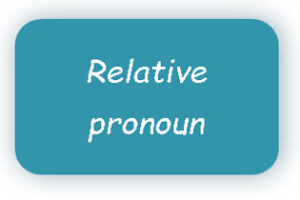Relative Pronoun and relative clauses:
Although they are often shrouded in grammatical enigma, relative pronouns, and clauses can be useful tools for adding precision and detail to your writing. But fear not, intrepid wordsmiths! This guide will help you unravel their secrets and equip you to use them confidently.
- Relative pronouns: These are words like who, whom, which, that, and whose that connect clauses. They act like bridges, linking new information to a previously mentioned noun or pronoun (called the antecedent).
- Relative clauses: These are dependent clauses, meaning they cannot stand alone and rely on the main clause for meaning. They are introduced by relative pronouns and add details about the antecedent.
Types of relative clauses:
-
Restrictive clauses: These are essential for identifying the specific noun or pronoun they modify. They are not set off by commas.
- Example: The book that I borrowed from you is fascinating. (Identifies which specific book)
-
Non-restrictive clauses: These provide additional, non-essential information about the noun or pronoun. They are set off by commas.
- Example: My grandmother, who lived in Italy for many years, made the best pasta sauce. (Provides extra detail about the grandmother.)
Choosing the right relative pronoun:
- Who/whom: Use for people (who as subject, whom as object).
- Which/that: Use for things and animals (which is more formal).
- Whose: Use for possession (for both people and things).
Remember:
- The relative pronoun takes on the grammatical function (subject, object, etc.) within its clause.
- You can sometimes omit the relative pronoun if it’s the object of the clause (e.g., the book I borrowed).
Pro tips:
- Use variety in your relative clauses to avoid monotony.
- Be mindful of comma placement to avoid confusion.
- Proofread carefully to ensure your clauses are grammatically sound.
By understanding relative pronouns and clauses, you can:
- Add clarity and precision to your writing.
- Create more engaging and informative sentences.
- Vary your sentence structure for better flow.
So, step out of the grammatical maze and embrace the power of relative pronouns! With practice and this handy guide, you’ll be using them like a pro in no time.
| Relative Pronoun | uses | Examples |
| Who | It presents for people | Meet my friend Jack, who passed the exams with an “A” grade. |
| Which | It presents for Subject and objects | Smoking is not a good habit that can ruin your life. |
| Whom | It presents people when the person is the object of the verb | This is the boy with whom my cousin is going to be engaged. |
| Whose | It presents possession of things or people, especially for asking questions | Whose books are these?.
Do you know whose pen is on the rack? |
| That | It presents people, animals, and things. | He is a very poor man who is begging on the roadside. |
| Where | It presents Places | That is the house where we lived ten years ago. |
| What | It presents things, is used asks questions, and is also used for exclamation. | Today was a fantastic day.
What kind of drinks do you like? |

